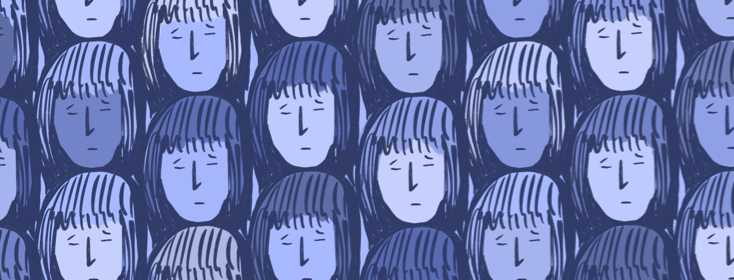It's Okay Not to Be Okay
One thing I absolutely love to talk about is mental health. Whether it's on my blog, Chronically Strong, my social media and other outlets, or in person. I genuinely think that mental health is one of the most underestimated and under-discussed, yet extremely important, topics there is, especially amongst the chronically ill community.
Without mental health, there is no physical health.
In order to thrive physically, we must be mentally stable. The importance of this cannot be stressed enough. So many of us spend our lives focusing on the physical aspect of our conditions, our doctors do the same. There was once a point in my life when I couldn't go a month without a hospitalization. Failed medication after failed medication, surgery after surgery. I was so dissatisfied with my life.
I wasn't in school and although I technically had a job, I felt like a complete failure. I was constantly leaving on short term disability, calling in so often my manager set it as an expectation. I had very few friends. The people who once seemed to be my "friends" slowly started disappearing. This is hard. It's hard feeling like an outcast. As if nothing you do will ever be significant. As if you'll always be "that sick girl." I wish I was brave enough to ask for help at the time.
Its okay to not be okay.
It's okay to ask for help. Seeking help doesn't make you weak. It makes you strong. You're choosing to do better, to be better. Seeking help shows you want more out of your life. Whether you're simply in need of meditation, time to yourself, or assistance from a medical professional, know there are options out there for you.
A few options you can look into include:
- IBD Mental Health Professionals - Mental health professionals that specialize in patients with IBD. More information can also be found on the Crohn's and Colitis Foundation Website.
- Mental Health Apps - There are many mental health and wellness apps that you can find for free or upgrade for a fee. I've found apps like Headspace helpful in the past.
- The Crohn's and Colitis Foundation also gives additional information on finding the proper mental health professional/treatment path (including: psychotherapy, relaxation training, consultation for medication): here.
- If you need immediate help (mentally) or are contemplating hurting yourself of course you can call 911 or use resources like the National Suicide Prevention Lifeline at 1-800-273-TALK and MentalHelp.Net.
IBD is physically and mentally challenging.
Don't ever feel as if you need to suffer in silence. People cannot begin to help until you ask. You'd be surprised how many people around you are battling things like anxiety and depression. And just as I encourage you to seek help, I also encourage you to be help. Always remember to put yourself first but if you see someone is struggling, just starting a simple conversation can brighten a day and lift someone's spirits. You can be the person who changes and possibly saves a life.

Join the conversation